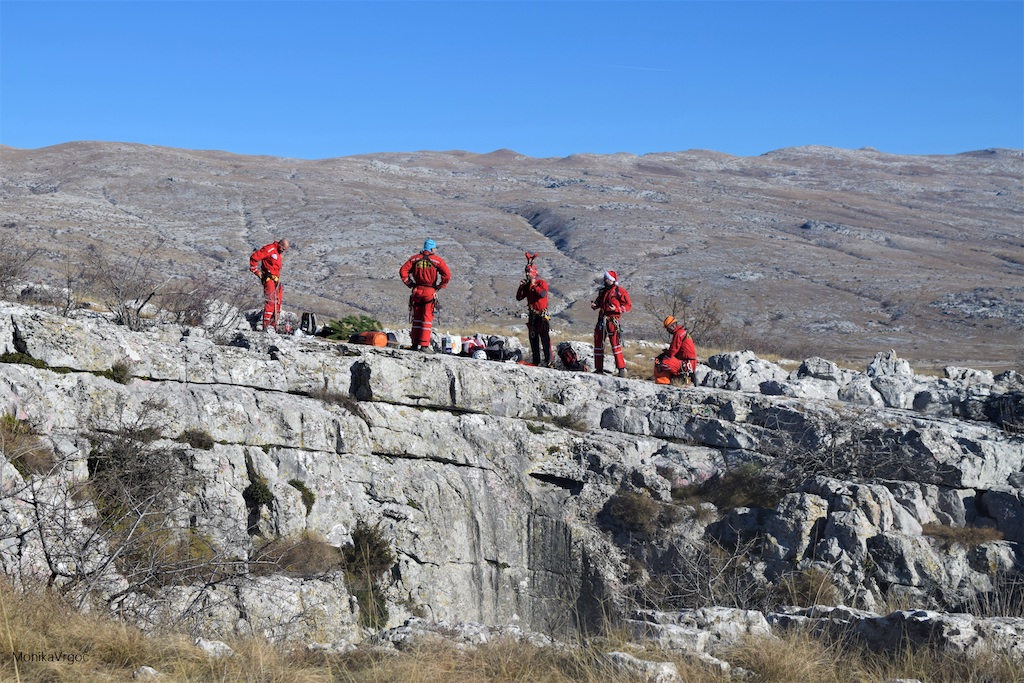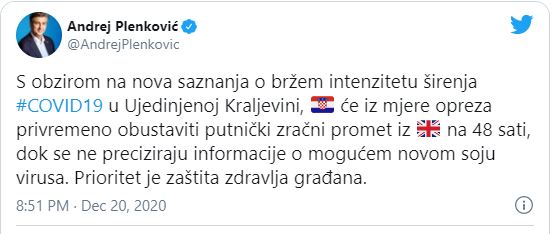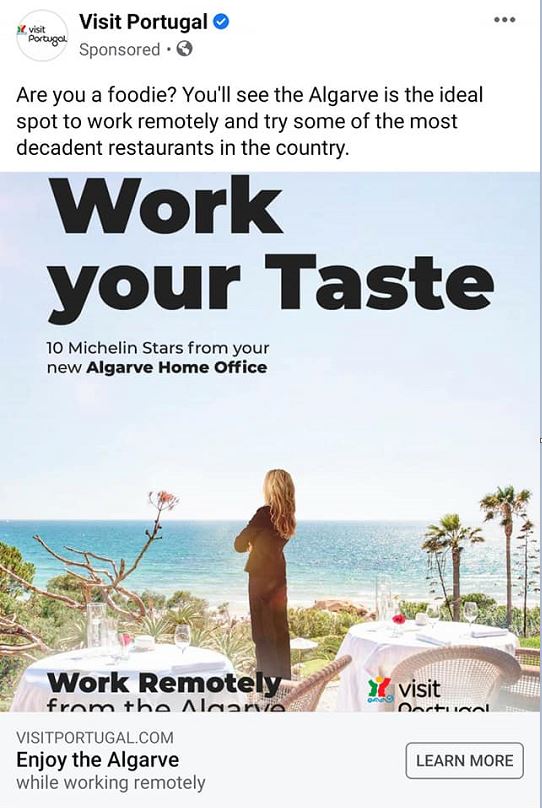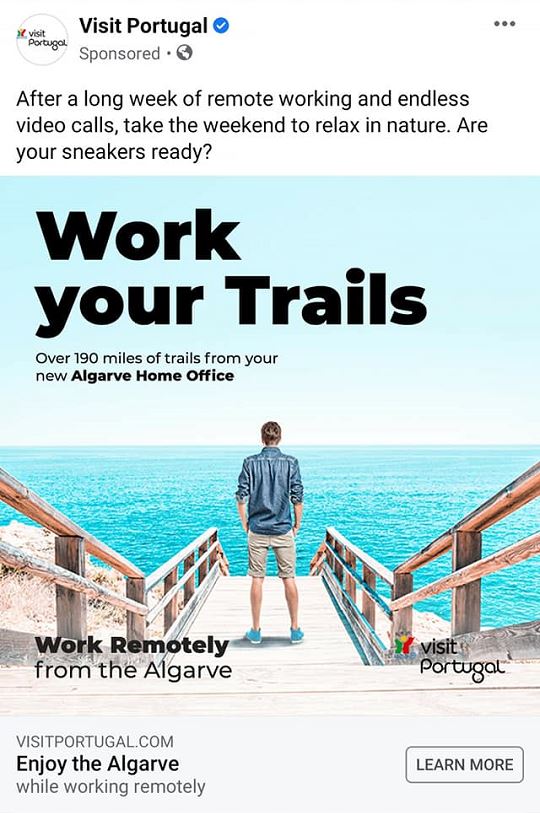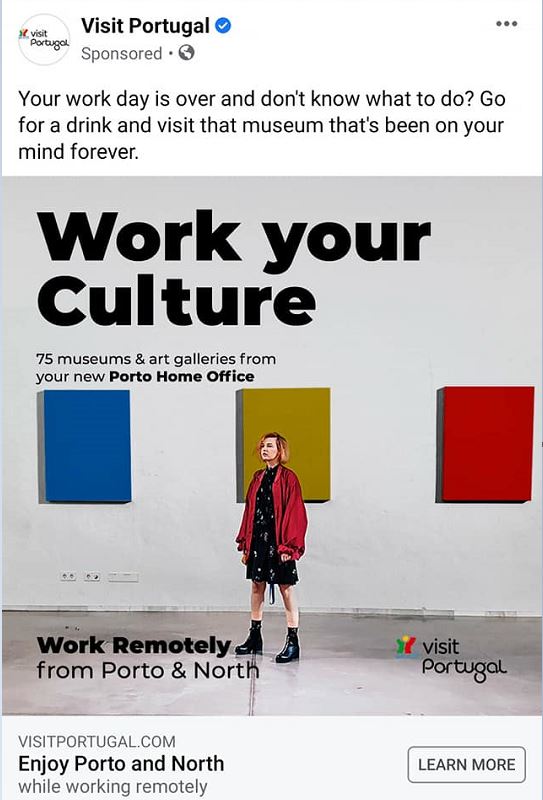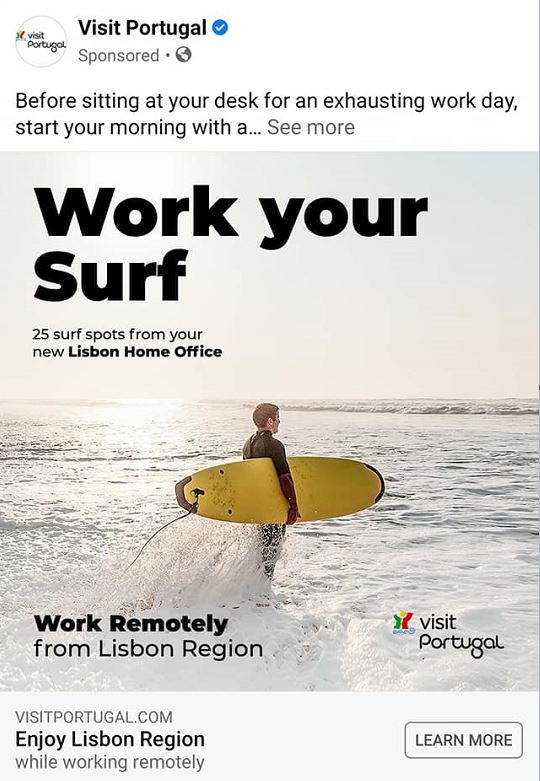E-passes System Ready for Use
ZAGREB, Dec 21, 2020 - Assistant Interior Minister Damir Trut, who is at the helm of of Croatia's civil protection system, told the Croatian Radio (HR) on Monday morning that the system for issuing e-passes for travel between counties was ready.
The ban on travel between counties goes into force on 23 December, as one of the latest anti-COVID measures. However, e-passes can be requested for justified reasons such as commuting to work.
Trut called on Croatians to adhere to the anti-epidemic rules, including the celebration of Christmas and New Year at home.
The new restrictions which are in place from 23 December to 8 January envisage that no more than 10 people from maximum two households are allowed at private gatherings during the holiday season.
Nikola Vlasic Named Footballer of the Year in Russia!
December 21, 2020 - Nikola Vlasic has been named the footballer of the year in Russia in the country's largest sports selection, divided into four categories.
Index.hr reports that the winner is decided by the votes of the 16 most prominent Russian coaches, 16 most distinguished sports directors and managers, 16 journalists of the most prestigious Russian sports portal, Sport Express, and readers of the same portal.
This is the greatest individual achievement for the Croatian footballer in his career so far.
The last Croatian to receive a similar award in a European league is Darijo Srna, who was awarded by Ukraine in 2010 while playing for Shakhtar.
Vlasic defeated all players from the Russian league and all Russians who play abroad, who were also nominated in this election.
The Croatian midfielder was chosen as the best in the opinion of coaches, sports directors, journalists, and spectators, i.e., in all four categories. Vlasic won with 251 points, Alexei Miranchuk came in second with 113, and Roman Zobnin came in third with 106 points.
CSKA Moscow, Vlasic's club, isn't having the best year. After finishing fourth in the championship in the 2019-20 season, they had an awful Europa League campaign, finishing last in the group with Dinamo Zagreb, Wolfsberger, and Feyenoord. But maybe there is some hope, as they are going into the winter break as the second-best team in the standings.
Despite poor results, Vlasic shined enough to win this prestigious Russian sports award.
At the moment, Vlasic is the fourth top scorer in the league with eight goals. The first in the standings are Džjuba and Azmoun, who have only three more goals. When it comes to assists, however, Vlasic is the first in the league with five.
A big congrats to the former Hajduk Split player who has also become a standard in Croatia's starting 11 this year!
To read more about sport in Croatia, follow TCN's dedicated page.
VIDEO: Unique Christmas Tree Decorated Inside Pit on Vrdovo
December 21, 2020 - Organized by members of the Speleo section of the Sv. Jakov Mountaineering Society from Bitelić, on Saturday, December 19, a unique Christmas tree was decorated inside a pit on Vrdovo, about 30 meters deep.
The Dinaric area is full of sinkholes, hidden pits, and caves, which, unfortunately, are often targeted by irresponsible individuals. Instead of serving a natural purpose, they are often turned into illegal landfills of various types of waste. However, the speleological section PD Sv. Jakov, in cooperation with numerous colleagues from all over Croatia, organized several ecological actions to clean the pits throughout the year to preserve them.
This seemingly unusual year has prevented the organization from numerous cultural and sporting events and competitions, but as we find ourselves in anticipation of Christmas, the happiest Catholic holiday, members of the speleological section of Sv. Jakov contributed to this year's Christmas mood in a truly unique way.
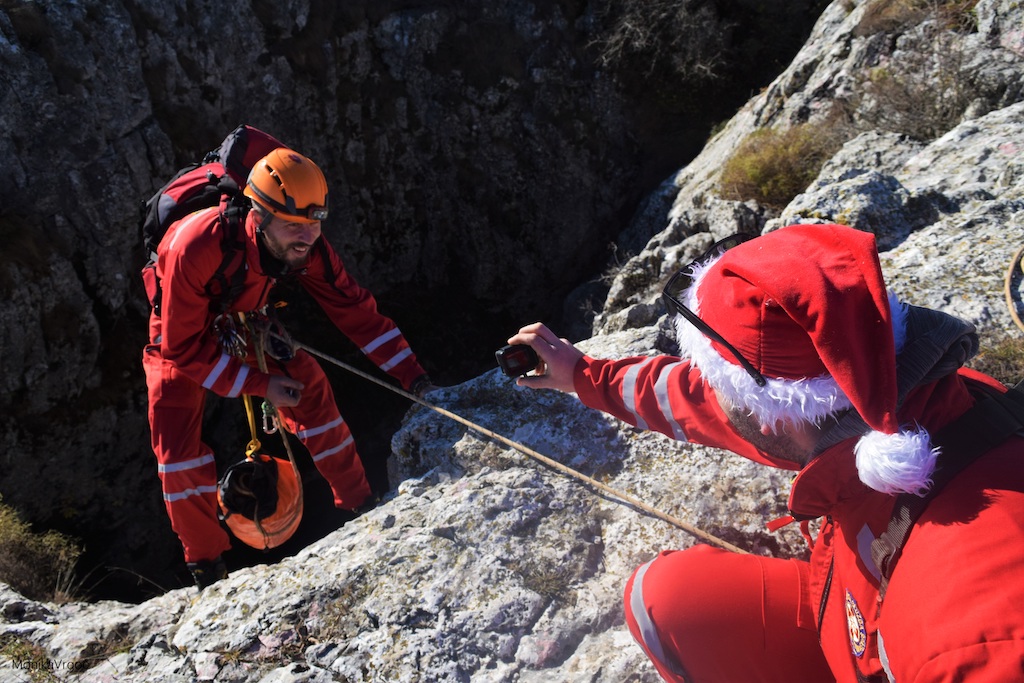
Namely, the members decorated a Christmas tree and recorded a video inside the pit, about 30 meters deep, wishing everyone a Merry Christmas and a happy and successful New Year.
VIDEO: Euro Handball Champions Norway Join Croatia to Sing Popular Croatian Sports Anthem
December 21, 2020 - If there is one thing Croatians know how to do best, it's singing and celebrating sports victories. Our Croatia women's handball bronze medalists couldn't help but continue the tradition at the European Championships, even tempting two gold medalists from the Norway squad to join along for a Croatian sports anthem.
The Croatia women's handball team were the best sports surprise of the year, winning the bronze medal at the European Championships in Denmark after beating the hosts 25-19 (11-11) in the match for third place in Herning.
This is the first medal in the history of the Croatia women's handball team.
After the medals were awarded to the three best national teams at the Euros, Norway, France, and Croatia, the Croatia team continued to celebrate on the floor of the hall in Herning.
At one point, they were joined by two Norweigian handball players and began singing "Neopisivo" (Indescribable), a Croatian sports anthem and hit among fans at all sporting events, originally sung by the Zaprešić Boys.
But you may be wondering why...
Namely, Marta Tomac is the daughter of Croatian coach Željko Tomac, who has been working as a coach in the Norwegian Handball Federation for years and is responsible for numerous medals in the men's and women's national teams.
His daughter, Marta, is an excellent handball player and a long-time member of the Norway national team. However, she often follows Croatian athletes, especially the Croatia national football team who won silver at the 2018 World Cup in Russia.
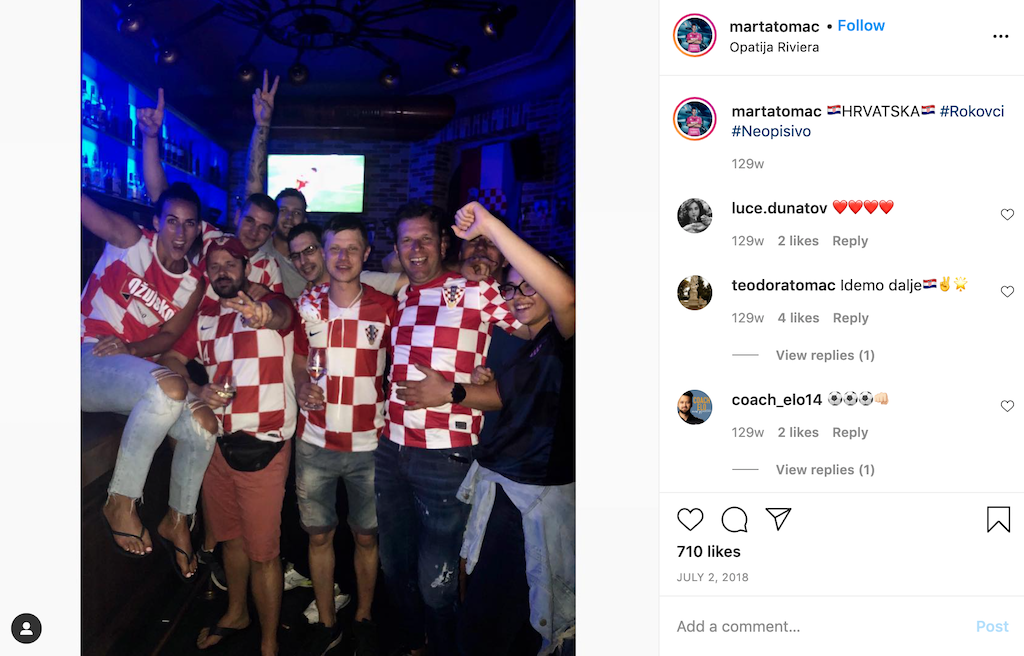
Emilie Hegh Arntzen, the other Norway player, seen in the video, was born in Norway and has no connection with Croatia, but she sang the song anyway.
Another big congrats to the Croatia women's handball team, who were absolutely brilliant throughout the Euros and won the hearts of fans all over Europe.
What a way to end 2020 for Croatian sport!
Source: Index.hr
To read more about sport in Croatia, follow TCN's dedicated page.
Digital Nomad Life in Croatia: Jess and Thibaud, from San Francisco to Jelsa
December 21, 2020- As the number of digital nomads rises globally, some are choosing to spend some of their time in Croatia. Continuing our TCN series meeting international digital nomads calling Croatia their temporary home. Meet Jess and Thibaud, from San Francisco to Jelsa on Hvar.
It has been a very strange year for tourism, but not all of it has been bad news.
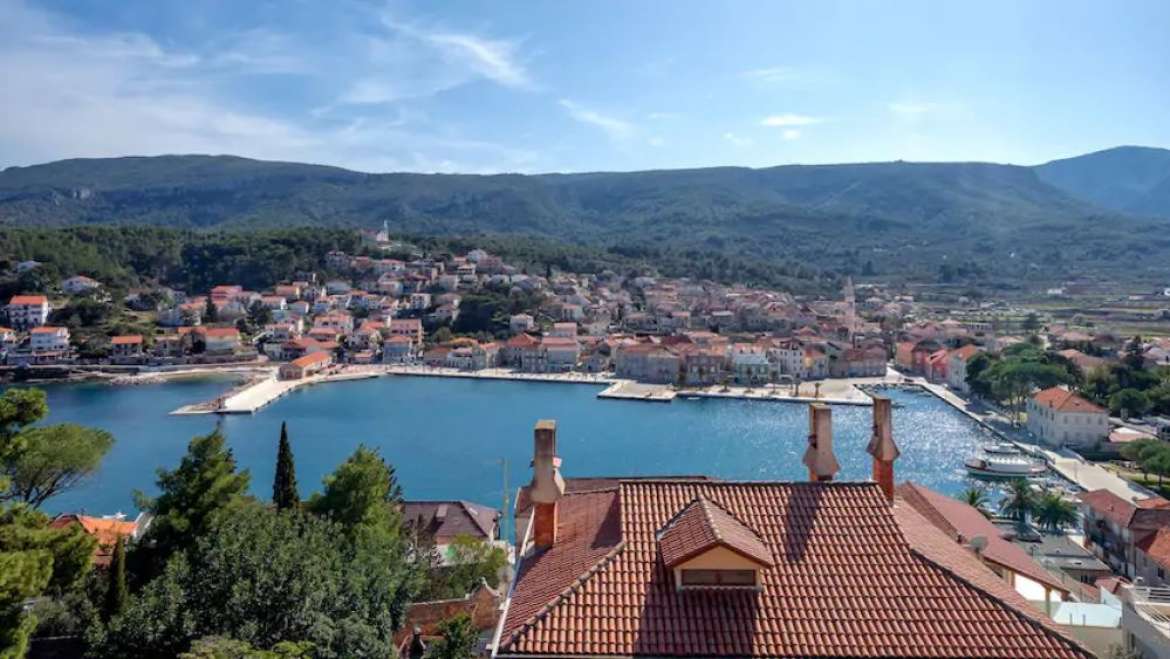
Renting our AirBnB apartment, Panorama Penthouse Jelsa, for example. Who would have imagined this time last year that the apartment would be empty for large parts of the early summer, but then booked solid for the winter months when it is normally empty? And by not one, but two digital nomad couples...
Meet Jess and Thibaud, the latest digital nomads in our series meeting remote workers choosing Croatia. What does San Francisco have that you couldn't possibly find in Jelsa anyway?
Tell us a bit about you and your work.
Thibaud grew up in Paris and has spent most of his life in Northern California. I’m from New York, which is where I lived until we moved to San Francisco a few years ago. We love to travel and spent five months backpacking in Asia in 2018. If I had to describe us in a sentence, I’d say we’re an adventurous pair that likes to live life to the fullest.
We work in the technology sector and have spent the majority of our careers at companies based in Silicon Valley. As a product manager, Thibaud designs and builds digital experiences for software platforms and tools. He sets the strategy and partners with engineering, design and business teams to make that happen. I work in business development, specializing in fintech. My job is to help companies grow and improve their market positions through client/supplier relationships and partnerships. Fun fact: we met at work!
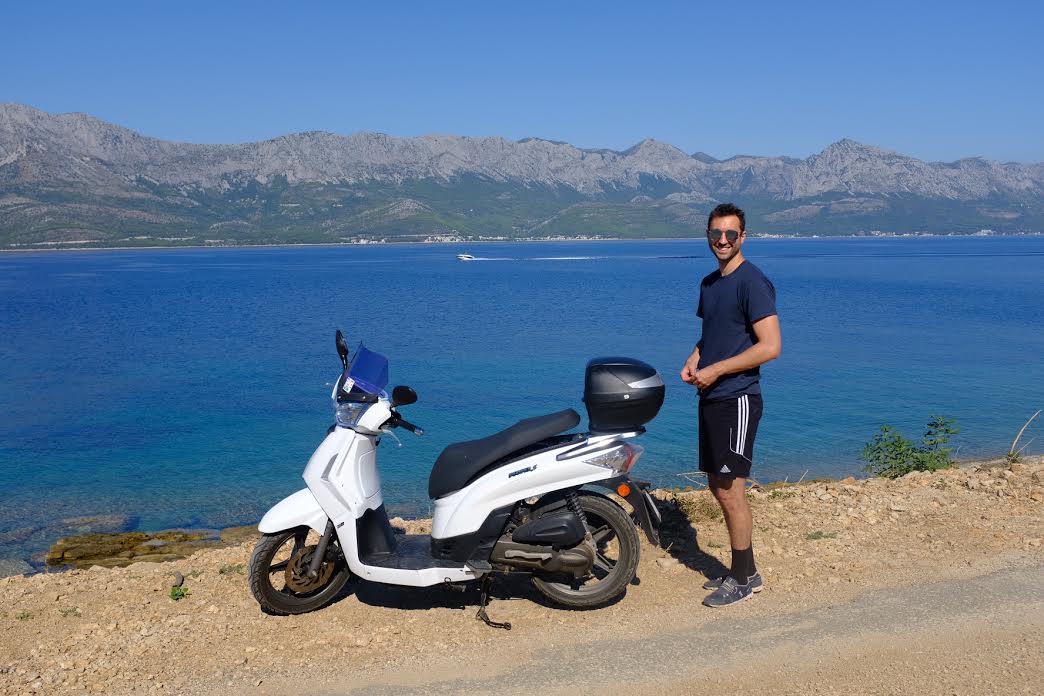
Pros and cons of working remotely?
Some of the more challenging aspects have been exacerbated by the pandemic - for example, the lack of social interaction. During normal times, people are able to meet with friends and family and go about their daily lives outside their homes, which balances the fact that they may not see their colleagues regularly. With the lockdowns, working from shared spaces or cafes isn’t an option, so it can be a bit isolating. Living and working in the place can lead to overworking, so it’s been important for us to set some of the boundaries that exist with non-remote work. Eating meals away from our laptops, keeping to a loose routine, and taking time for movement have been helpful ways to break up the day.
More effort is required to build and maintain relationships with colleagues when working remotely. Information can fall through the cracks without those impromptu desk-side chats in the office and that glass of wine with your teammate at the end of the workday. Remote work requires more mindfulness about how you interact with colleagues and clients.
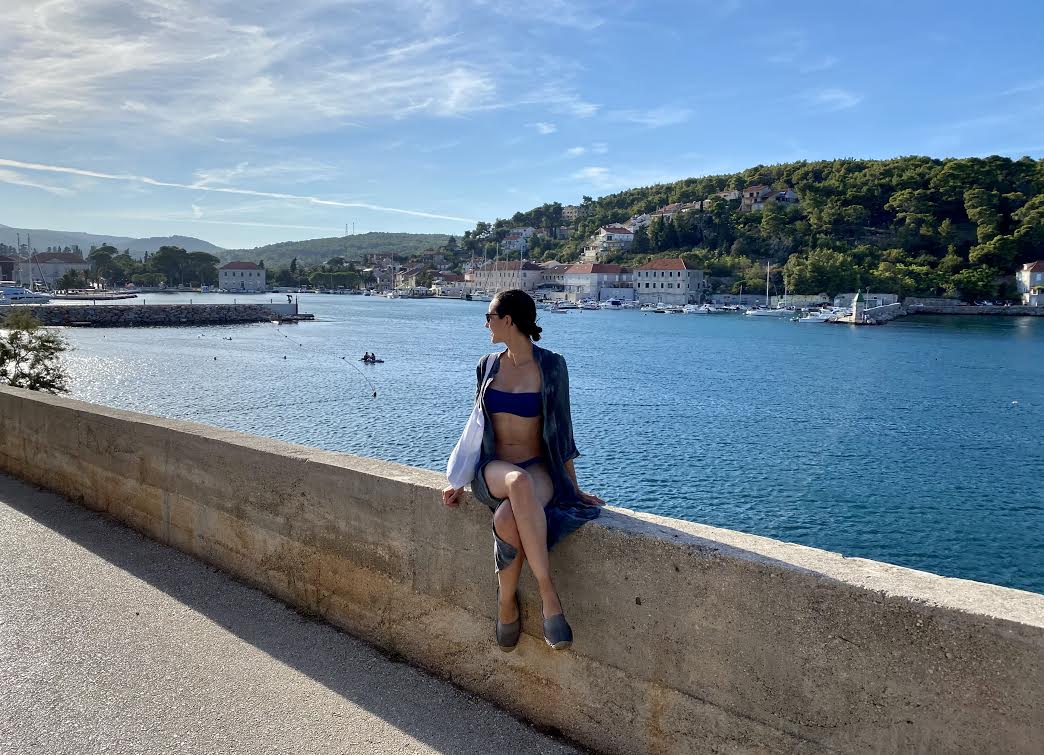
The overall flexibility that remote work enables is the biggest pro. Without it, the term ‘digital nomad’ wouldn’t be a thing! We feel fortunate that our roles can be done remotely, as opposed to many professions that require physical presence. Not being tied down to one location and being able to experience new places is one of the best things about working remotely. Not having to commute is great as it saves time and reduces your carbon footprint. Being able to prepare your own meals is a pro. Having the ability to choose your working setup is a pro, such as taking calls while on a walk or switching rooms to follow the sun. Having the option to wear whatever you’re most comfortable in everyday is also a nice perk.
Remote work also enables companies to hire the best talent regardless of where people live. Being able to build teams across borders can be positive for both employers and employees from an economic perspective and also help drive diversity of thought.
This isn’t an exhaustive list of the pros and cons, but highlights some of the aspects of working from home. For us, the benefits of remote work outweigh the challenges.
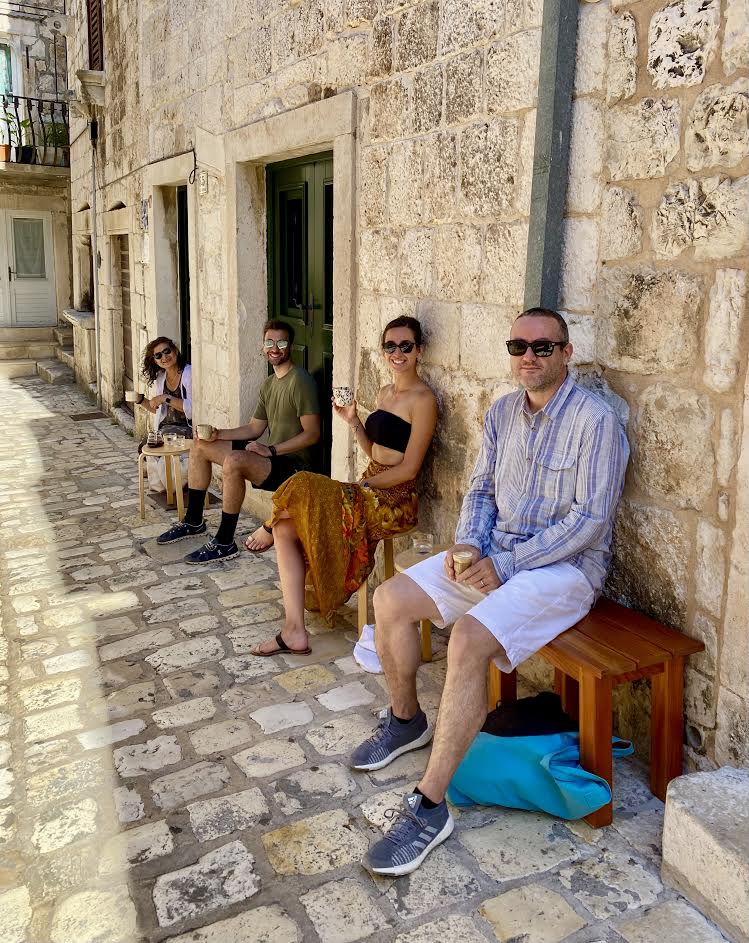
How did you choose Croatia and specifically Jelsa?
It was a major decision to travel, let alone temporarily relocate, during Covid-`19. After weighing the risks, we decided to take advantage of our new ability to work remotely. Prior to the pandemic, we had been able to work from home occasionally but not consistently. Many technology companies started to enable employees to work from home full-time in March and we knew that we would not need to return to our offices for several months. We fully embraced the uncertainty of 2020 - we closed our San Francisco lease in June, took a month-long road trip around the western United States, and then took a one-way ticket to Split.
We wanted to spend our time remotely working in Europe and Croatia was one of the few countries open to Americans in August. I had visited Dubrovnik, Hvar and Split a few years ago, so I had some familiarity with Croatia. We chose to avoid big cities, and decided that a smaller town on an island would be a good choice. We searched Hvar and Brač for accommodations and I was excited about this Airbnb in Jelsa, primarily because of the terrace and view. Jelsa turned out to be just the kind of destination we were looking for - quaint, walkable, and charming.
Our original plan was to stay about a month in Croatia and then travel to another European country. But within a few days of arriving, we extended our booking to two months. In October, we considered traveling elsewhere, but decided against it given the rising Covid-19 risk and changing border restrictions. Plus, we were happy in Jelsa and felt settled despite having been there for a short time. We’ve made some incredible friends here and feel a sense of community - for that, we are very grateful!
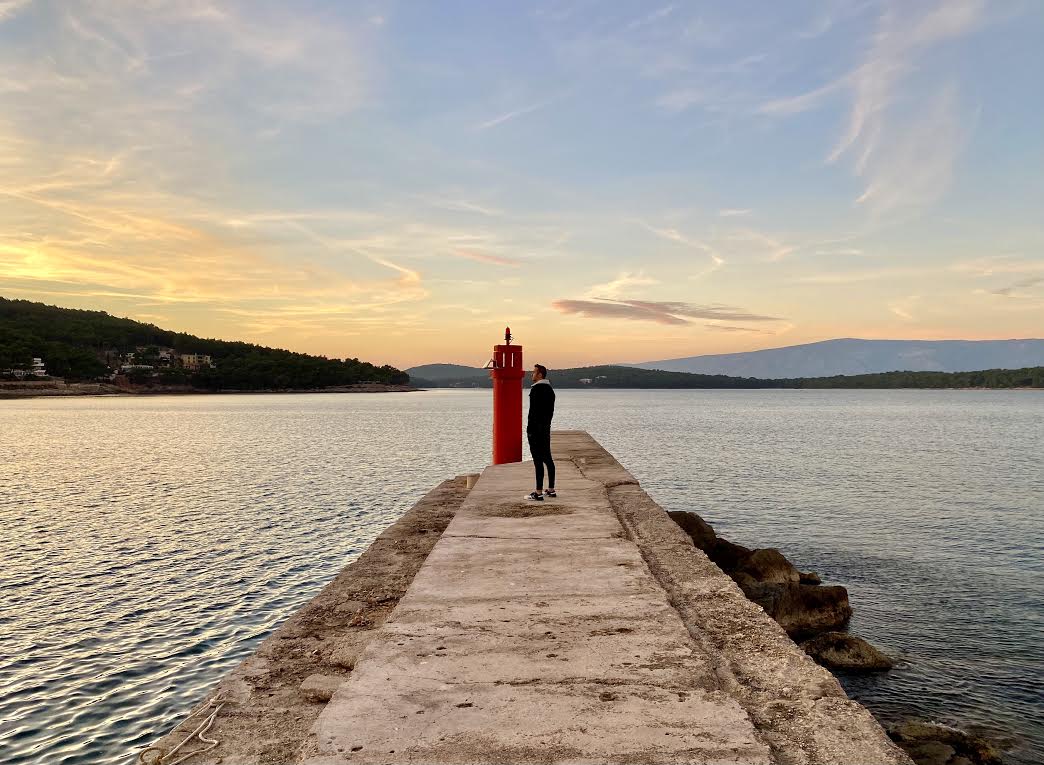
What’s important for a destination to offer to be compatible with a digital nomad lifestyle, apart from good WiFi?
This varies from person to person. We consider things that enable a good quality of life based on our priorities. Comfortable and affordable housing, ideally with a full kitchen and adequate desk space, is important. The beauty of the surroundings and access to nature is also a priority, at least for us. We’ve lived in busy cities, so one advantage of being a digital nomad is being able to live in serene and quieter places.
Being able to get around is important, so walkability is a plus. It’s also important to be able to find high quality food and have grocery stores nearby. Access to basic healthcare is also a consideration. Athletic facilities, such as a gym or soccer fields, are also pluses.
It’s easier to meet people and go about everyday life in places where English is spoken widely. Being able to connect with people is really important, so the presence of expat communities can be helpful, as well as the openness of the culture. We’ve had an extremely positive experience with Croatians in general - our friends and acquaintances have been so welcoming, friendly and willing to help us out with just about anything.
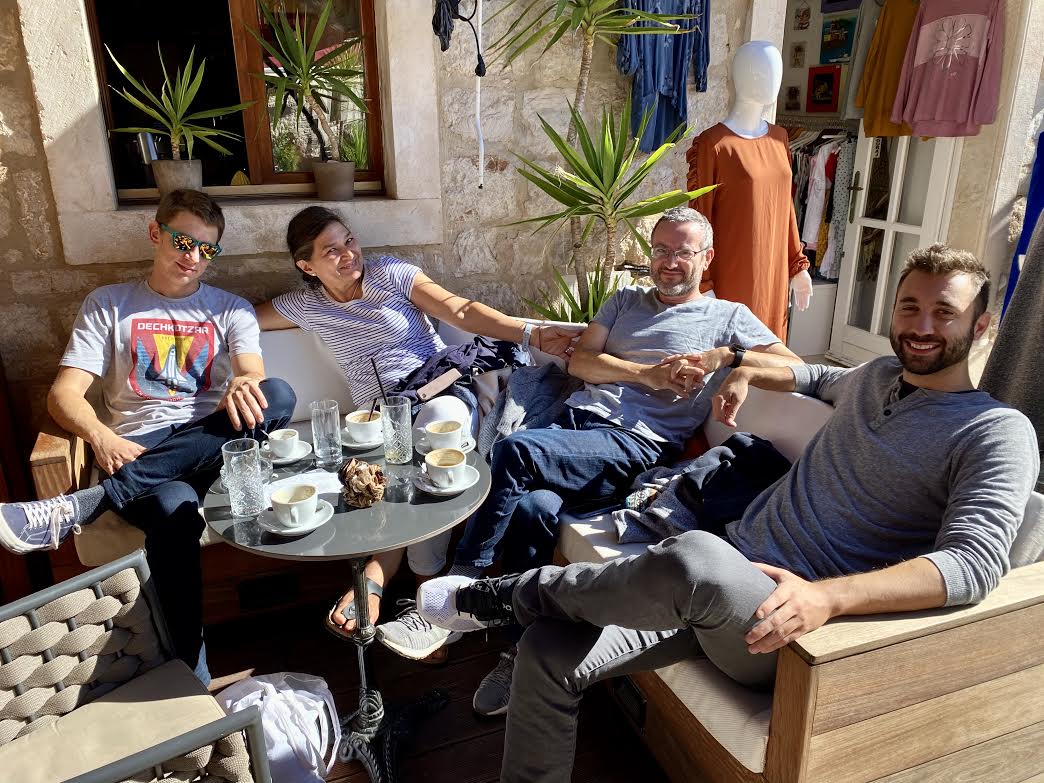
What’s your view on the future of remote work?
Remote and flexible work arrangements have been trending for the past decade or so, and Covid-19 has certainly expedited that trend. Many people have been encouraged to stay at home and non-remote companies have had to adapt quickly. As a result, I think it’s been eye-opening for workers and companies to see that, in fact, remote work can be productive and even beneficial for morale and results. Covid-19 is likely a forcing function for companies, as well as for individuals, to re-evaluate their work arrangements. Fully remote models may not work for everyone or every company, but I do think that flexible work arrangements will become the norm in some industries.
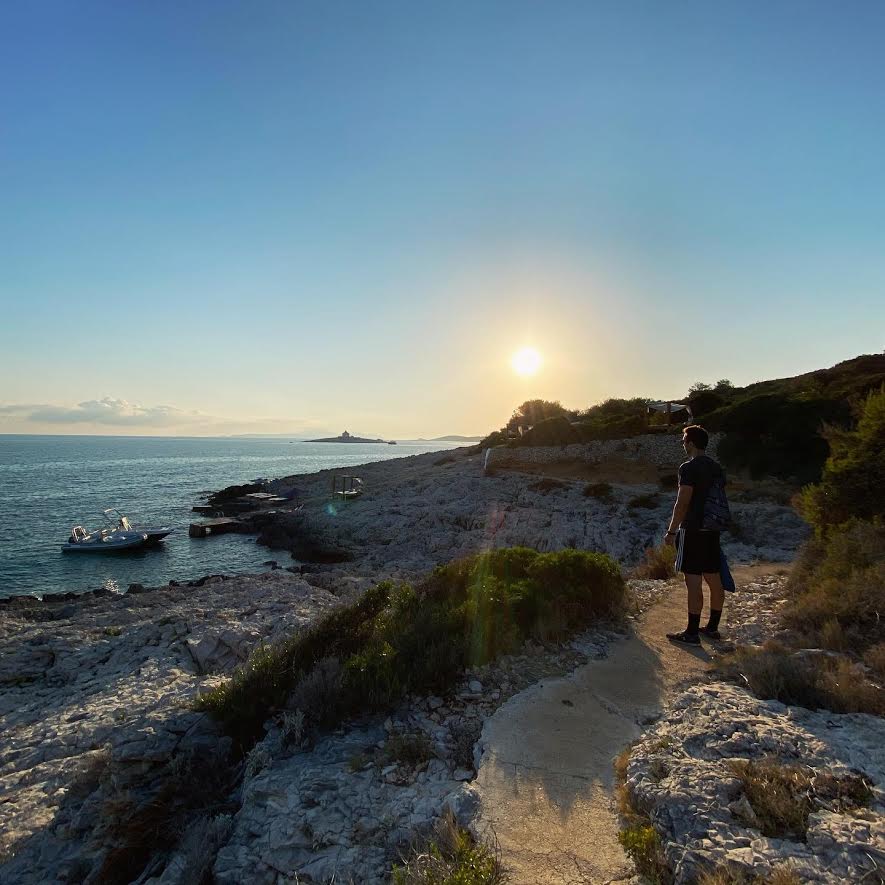
Do you have any advice for people looking to make the transition to digital nomad life?
Think about what you’re trying to optimize for and how different aspects of remote work do or don’t suit your lifestyle. If you’re relocating, research potential destinations before making the move. In order to be effective at your job and maintain good work/life balance, it’s important to be disciplined with your time and to set boundaries.
Most importantly - if remote work is something you want to do - just go for it! Companies are embracing remote work more now than ever. It may take some persistence to find a new role or company, or to negotiate with your current employer (which might be you!). Most decisions aren’t permanent - if it doesn’t work out, you can always go back to what you’re doing now. The grass isn’t always greener on the other side, but you won’t know until you take that leap.
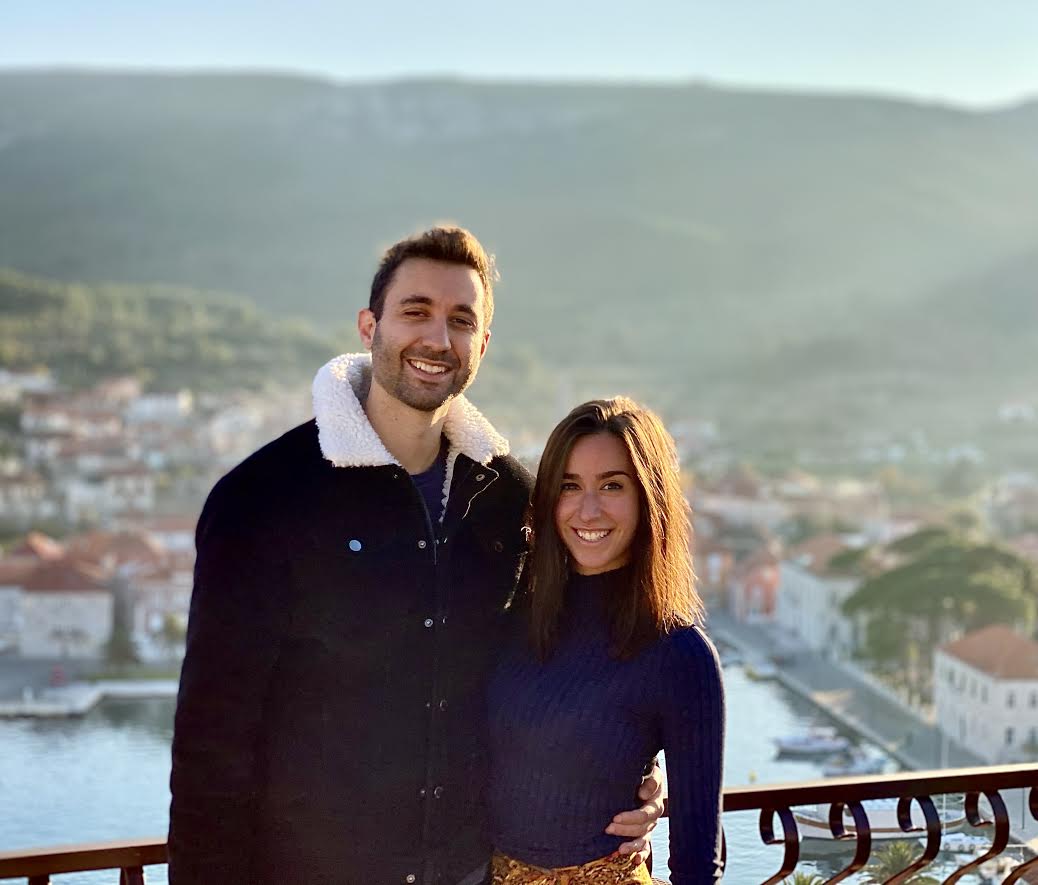
To learn more about Croatia for the digital nomad, check out the Total Croatia Digital Nomad guide.
To follow the latest news about digital nomads in Croatia, follow the dedicated TCN section.
Are you a digital nomad in Croatia who would like to be featured in this series? Please contact us on This email address is being protected from spambots. You need JavaScript enabled to view it. Subject Nomad
Croatia Imposes Temporary Ban on Flights from UK over New Coronavirus Variant
December 21, 2020 - Croatia, along with several other countries, has introduced a temporary ban on flights from UK due to the new coronavirus variant there.
December 22 update - this ban has now been extended until December 31.
A late-night tweet from Croatian Prime Minister Andrej Plenkovic yesterday evening:
"Croatia is temporarily suspending passenger flights from Great Britain in the period of next 48 hours as a precaution, until we are provided with more precise information about the new variant of the virus," Prime Minister Andrej Plenkovic wrote on the Twitter on Sunday evening.
"Protecting the health of citizens is a priority," Plenkovic tweeted.
Apart from Croatia, France, Ireland, Germany, Austria, Bulgaria, the Netherlands, Canada and Italy as well as some more European nations have already begun to apply travel bans with the UK after it reported a more infectious and "out of control" coronavirus variant.
The whole European Union is set to impose the ban, and the consultations are under way on the joint response to travel by sea, rail and road from Great Britain.
The ban, already in place, is the first ban imposed on any country due to coronavirus by Croatia, which has enacted a much more relaxed approach to interpretations of EU directives. It was the only EU country open to Americans this summer, initially without a negative PCR test until July 10.
Croatia will most likely follow other EU countries with the current ban. Whatever happens with the ban, there will be a change in British requirements to enter Croatia from January 1, when the Brexit transition period ends. Currently, Croatia is closed to non-EU/EEA countries for tourism until at least January 10, although some tourists have been able to enter for economic reasons with accommodation fully paid in advance.
For the latest situation on the ground, the real time experiences of the Total Croatia Travel INFO Viber community have been invaluable.
Join the Total Croatia Travel INFO Viber community.
For the latest travel info, bookmark our main travel info article, which is updated daily.
Read the Croatian Travel Update in your language - now available in 24 languages.
HNL Round 16 Recap: Winter Season Ends with Dinamo and Osijek on Top of Table
December 21, 2020 - The 16th round of the Croatian First League was held on December 19 and 20, 2020. Only three games were played in the winter season's final round, putting Dinamo and Osijek on the top of the table.
Osijek v. Sibenik (1:0)
Osijek and Sibenik opened the 16th round on Saturday, December 19, 2020, at City Garden Stadium.
The only goal of the match came in the 17th minute, thanks to a stellar header by Skoric for the 1:0 Osijek win.
Osijek is currently in 2nd place with 33 points and 16 games played, while Sibenik is in 7th with 13 and only 14 games played.
Dinamo v. Varazdin (4:0)
Dinamo and Varazdin met at Maksimir Stadium on Saturday, December 19, 2020.
A goal by Orsic in the 23rd and Petkovic in the 31st put Dinamo up at 2:0 at the half. A penalty awarded for Dinamo in the 79th minute scored by Petkovic made it 3:0, and Hajrovic secured Dinamo's victory in the first minute of added time for the final 4:0 result.
Dinamo is currently in 1st place with 33 points, however, with only 14 games played, while Varazdin is in 9th place with 12 points.
Hajduk v. Gorica (2:4)
Hajduk and Gorica closed out the 16th round on Sunday, December 20, 2020, at Poljud Stadium.
Dieye scored the first goal for Gorica for 0:1 in the 6th minute. Atanasov equalized for Hajduk in the 24th. A penalty was awarded to Gorica in the 53rd, which Lovric scored for 1:2. Diamanatakos scored for 2:2 in the 63rd.
Another penalty was awarded to Gorica in the 76th minute, putting them back in the lead for 2:3. Moro scored a final-minute goal for the 2:4 Gorica victory.
Hajduk is currently in 5th place with 17 points, though with only 14 games played, while Gorica is in 3rd place with 29 points and 14 games played.
Istra 1961 and Lokomotiva already played their last matches this year. They were supposed to meet at Aldo Drosina Stadium in the 16th round, but the match was postponed due to COVID-19 infections in the Istra squad. Istra also had to postpone their two previous games against Sibenik in the Cup and the championship.
HNS also postponed the 16th round match between Slaven Belupo and Rijeka.
The Koprivnica club has four positive COVID-19 cases, and the competent epidemiologist determined a measure of self-isolation for three other players because the contacts of the infected were close. According to the decision of the HNS Competition Commission, any team that has six or more players in self-isolation can request a postponement of the match.
Rijeka will welcome the winter break with 20 points in 4th place, with five games behind, while Slaven Belupo is 6th with 17 points and one game behind.
The match between Slaven and Rijeka was supposed to be played on Sunday, December 20.
You can see the full HNL table HERE.
To read more about sport in Croatia, follow TCN's dedicated page.
HRK 9.6m to Be Invested in Platak Ski Resort Next Year
ZAGREB, Dec 20, 2020 - Primorje-Gorski Kotar County will invest HRK 9.6 million (€1.28m) in the further development of the Platak ski resort next year, the County Assembly decided earlier this week.
The money will be used for the completion of snowmaking pipelines and three ski runs. The completion of the snowmaking system, installation of a new ski lift and further development of ski runs, roads and other amenities are planned for the coming years.
Under the investment plan, the County will invest about HRK 41 million (€5.4m) in the Platak sports and recreation centre by the end of 2023.
Platak is located just northeast of the northern Adriatic city of Rijeka.
Visit Portugal, a Lesson in Promotion of Remote Worker Tourism
December 20, 2020 - Tourism promotion in the corona era has been a challenge. One tourist board has been doing things rather well - lessons from Portugal.
Is it worth even promoting tourism during a pandemic, with future travel so uncertain?
This year has brought unprecedented challenges to the tourism industry, from event management to marketing and promotion. While many destinations chose to remain quiet or engage in campaigns such as #CroatiaLongDistanceLove, the best Croatian destination for 2020 promotion in my opinion was Zagreb, and the Croatian capital responded brilliantly to the twin disasters of the pandemic and earthquake with some very innovative marketing on a budget. Campaigns such as Zagreb Loves You and From Zagreb Balconies and the new Around Zagreb platform are but some examples.
One tourism country stood out for me in 2020 for its tourism promotion. So much so in fact, that we have decided to visit when we next get round to that foreign holiday - Portugal.
Portugal first came on my tourism radar this year back in April, being the first, along with South Africa, to post a promotional video aimed at the post-corona world, with a global captive audience locked down and yearning to travel.
Both Portugal and South Africa's videos stood out at the time as beacons of hope and positivity. I remember discussing Portugal as a place to visit with the family a couple of times over lunch.
I was back to Portugal in August while researching new avenues for Croatian tourism to move it a more sustainable and 12-month destination. Portugal is doing everything right - Lessons from Portugal: Taking Advantage of the Retirement Lifestyle Opportunity.
And, as we approach the end of the year, Visit Portugal is featuring large in my social media feed. Either Facebook has been listening to our family luncheon conversations, or perhaps our coverage of digital nomads is the reason, but I have been peppered with Visit Portugal ads in the last 24 hours, a different one every time I go on Facebook.
So why visit Portugal if you are a remote worker? The food perhaps. Head to the Algarve and 10 Michelin Star restaurants.
Perhaps you are a hiker. More than 190 miles of trails to explore when you close down the laptop.
Looking for a little socially-distanced sport after work. There is none so socially distanced as golf, and the Algarve is one of the premier golf regions of Europe.
A culture vulture? More than 75 museums and art galleries from your temporary home in Porto.
Or what better way to kick start the day in the Lisbon region than a little surfing from one of 25 surfing spots.
What I particularly liked was that each ad led to the same landing page, which summarised the tourism offer of Visit Portugal in 12 sections, each with their own short intro paragraph and dedicated promo video: the cities Lisbon and Porto; sun, sea and beach; walking and cycling trips; paths of faith; surfing; golf; wines; gastronomy; UNESCO World Heritage Sites; read Portugal; travelling in safety; and the people. In 30 minutes, accompanied by some great short videos, the entire offer for remote workers is presented.
When do flights from Zagreb to Lisbon start up again?
Croatia Women's Handball Team Wins First-Ever Bronze Medal at European Championships!
December 20, 2020 - The Croatia women's handball team topped Denmark in the bronze medal fight at the European Championships in Denmark!
The Croatia women's handball team played their last match of the European Championships against the host of the tournament, Denmark, at 15:30 on Sunday.
Croatia lost in the semi-final to the powerful France, which dominated every part of the game and celebrated 30:19.
Denmark offered much more resistance in the semi-final match to Norway but eventually lost 27:24. Denmark was the favorite for the bronze.
Croatia v. Denmark Recap
Croatia scored the first goal of the match with a seven-meter shot for 1:0. Croatia scored for 2:0 in the 3rd minute and 3:0 in the 4th. Denmark scored their first goal in the 6th minute for 3:1 and came back for 3:2 in the 8th minute.
Debelic increased Croatia's lead to 4:2 moments later. Denmark equalized for 4:4 in the 10th.
Denmark took the lead for the first time of the match in the 12th minute - 4:5. Denmark was up by two in the 14th - 4:6.
Debelic brought Croatia back to -2 in the 19th minute - 5:7, and a stellar Pijevic save stopped Denmark's next attack. Jezic scored for -1 in the 21st - 6:7.
Croatia equaled the score for 7:7 in the 23rd - and Posavec put Croatia back in the lead one minute later - 8:7!
Denmark took back the lead in the 26th - 8:9, but Croatia equalized seconds later.
With three minutes to go in the first half, it was 10:10. With two to go, Posavec gave Croatia the lead again for 11:0.
The first half ended at 11:11.
Croatia opened the first half with a goal for 12:11. Posavec scored for 14:12 in the 33rd.
Croatia maintained the lead for the minutes that followed and were up by four in the 48th minute for 21:18. In the 50th minute, Posavec scored for 22:18!
Simara scored for +5 with just over five minutes to go - 23:18 Croatia! Pijevic remained spectacular in goal.
Croatia was up by 6 goals with just over three minutes to go, and it was 25:19 in the 57th.
Pijevic gave Denmark no hope - and Croatia held their 25:19 lead until the end! Katarina Jezic was named the player of the match.
This is the first medal in the history of the Croatia women's handball team!
To read more about sport in Croatia, follow TCN's dedicated page.


